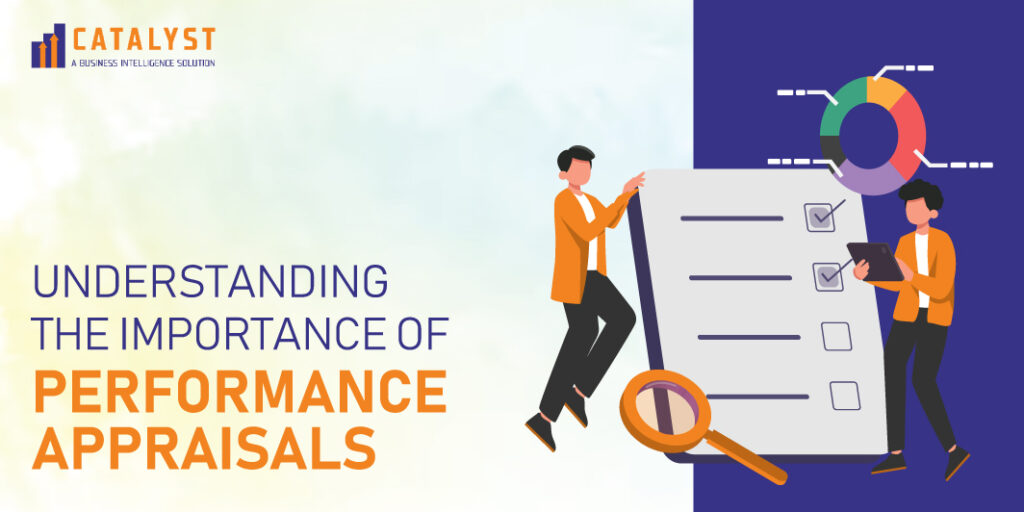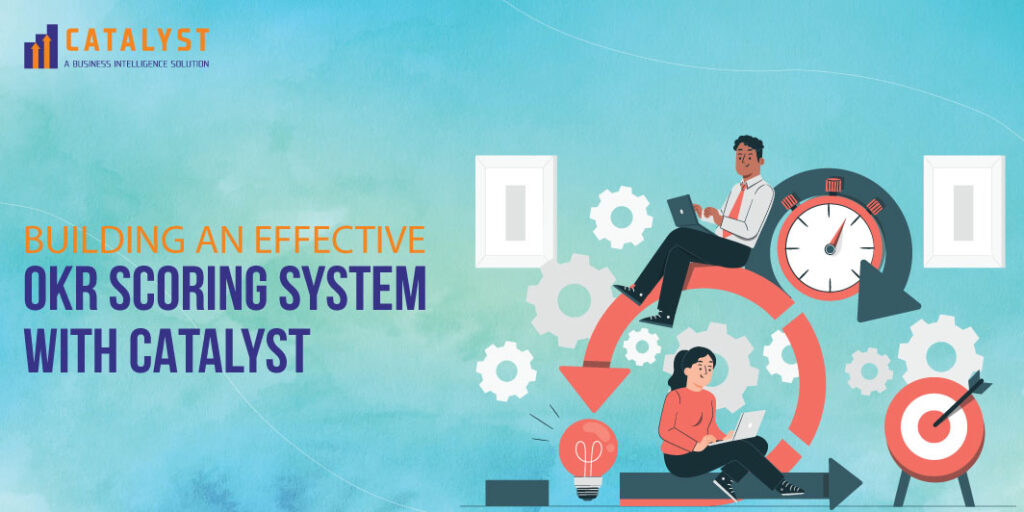
Understanding The Importance Of Performance Appraisals
Employee performance lies at the heart of any organization’s success. Employees who consistently perform well achieve business objectives, increase productivity and profitability, and drive organizational growth. Regular performance reviews and appraisals help employees sustain and improve their performance levels by providing feedback, identifying skill gaps and setting goals. Managing employee performance effectively through proper performance management software leads to higher employee engagement, satisfaction and retention-the pillars of a successful workforce. This blog by experts at CATALYST by Phi EDGE will help you understand performance appraisal needs and benefits in detail. Let’s get started!
WHAT IS A PERFORMANCE APPRAISAL AND WHY IS IT IMPORTANT?
A performance appraisal is a systematic evaluation of an employee’s job performance and competencies. Appraisals are used by businesses to identify employee training needs, determine compensation and make decisions about promotions, transfers and terminations.
Performance appraisals help employees improve their performance, provide them feedback on their strengths and weaknesses and set performance goals for the future. Appraisals also give managers insights into how employees are performing and whether they are achieving organizational goals.
Performance appraisals allow organizations to evaluate the effectiveness of employees in their current roles and identify future training or developmental needs. Proper performance appraisal helps retain top performers and address underperformance with timely feedback and interventions. Choosing CATALYST by Phi EDGE, one of the leading business performance management solutions can help you implement performance appraisals in your organization hassle-free!
PERFORMANCE APPRAISALS IN THE WORKPLACE
1) USES
Organizations use performance appraisals for various purposes like – determining compensation and salary increments, identifying training needs, making promotion decisions and administrative actions like transfers.
2) TYPES
Common types of performance appraisals include:
- Trait appraisal evaluates employees based on predefined traits or competencies. These include skills, knowledge, abilities and other characteristics.
- Results-oriented appraisal focuses solely on employees’ output and results achieved. It does not consider the means to achieve those results.
- Behaviour-based appraisal evaluates an employee’s actual behaviour and competencies exhibited in performing job duties.
- Psychological appraisal evaluates an employee’s attitudes, interests and motivation.
- 360-Degree appraisal gathers performance feedback from supervisors, peers, direct reports and sometimes even customers.
3) LIMITATIONS
While performance appraisals serve several useful objectives, they are not without limitations.
Limitations of performance appraisals include:
• Ratings can be highly subjective and biased.
• They suffer from halo effects where raters rate employees consistently high or low.
• Performance goals are sometimes unclear, vague or unrealistic.
• Unconscious prejudices and favouritism may affect ratings.
• Appraisals may discourage enterprise and innovation.
• Resistance from employees receiving negative feedback.
Proper design and implementation can address some of these issues and maximize the benefits of performance appraisal systems.
BENEFITS OF PERFORMANCE APPRAISALS
• Provides structured feedback – Feedback helps employees understand how they are performing and what they need to improve. It motivates them to perform better.
• Identifies training needs – By understanding performance gaps, organizations can devise effective training programs for employees.
• Determines compensation – Appraisal scores are commonly used to determine salary increments, bonuses and other compensation.
• Helps make administrative decisions – Performance data helps decide promotions, demotions, transfers and terminations.
• Provides data for succession planning – High performers can be identified and groomed for leadership roles.
• Improves organizational performance – Better individual performance translates to higher productivity and organizational effectiveness.
IMPORTANCE OF EMPLOYEE PERFORMANCE EVALUATION
Regular performance evaluations are important for:
– Motivating employees by recognizing accomplishments
– Identifying training needs to improve performance
– Determining compensation based on performance
– Assessing if employees are a fit for their current role
– Making decisions about promotions, transfers and terminations
– Giving employees clarity about performance expectations
– Improving communication between managers and their teams
Overall, proper performance appraisals are critical to managing performance, retaining talent and making necessary organizational changes to achieve strategic objectives. A 360-degree performance review that incorporates feedback from managers, peers and direct reports provides a comprehensive assessment of an employee’s performance.
CHOOSE CATALYST BY PHI EDGE FOR PERFORMANCE APPRAISAL
CATALYST by Phi EDGE is a powerful business performance management software that can streamline and optimize your performance appraisal process. With CATALYST, you can automate and simplify performance review workflows. Employees can self-evaluate their performance online and set goals for improvement. Managers gain 360-degree visibility into team members’ objectives, tasks and OKRs. Align individual goals to organizational goals and track progress in real-time. The configurable dashboard provides valuable performance insights to drive decision-making.
Book a demo today to discover how CATALYST can boost performance, engagement and productivity across your organization through efficient and effective performance appraisals.


